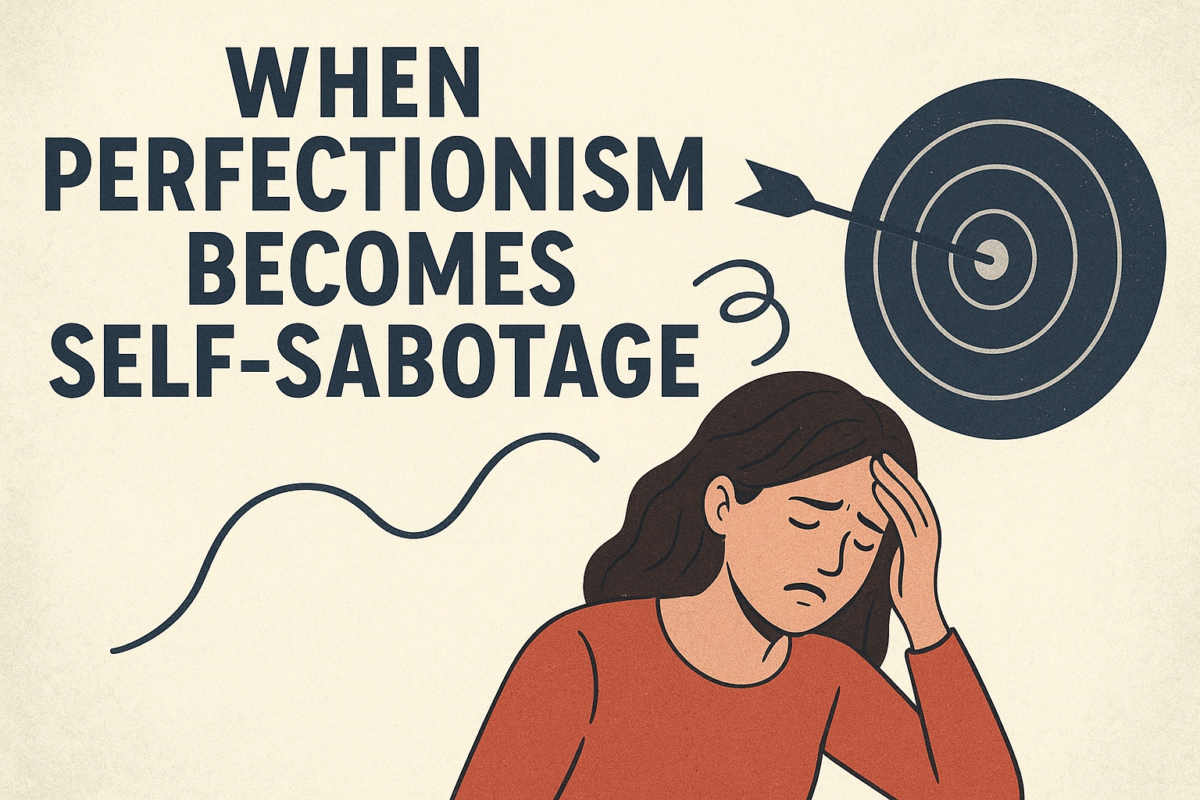There’s a cruel irony in perfectionism that most of us miss: we think we’re being our own best advocate, pushing ourselves toward excellence, when we’re actually practicing a subtle form of self-rejection.The logic seems sound at first. You work harder, longer, more carefully than anyone else. You refuse to settle. You demand the best from yourself. Isn’t that admirable? Isn’t that how success happens?
But here’s what perfectionism actually does: it keeps you in a state of perpetual inadequacy. No matter how much you accomplish, no matter how hard you work, the finish line keeps moving. The goalposts shift. What you create is never quite good enough. And more insidiously, *you* are never quite good enough.This is where perfectionism reveals itself not as high standards, but as a form of self-rejection. Because the message underneath all that striving isn’t “I believe in my potential.” It’s “I’m not acceptable as I am.”
The Suffering Multiplier
The particularly cruel aspect of perfectionism is how it compounds suffering. You’re already doing the work. You’re already putting in the effort. But perfectionism adds another layer: the constant internal criticism, the anxiety about whether it’s good enough, the inability to feel satisfaction even when you’ve done something genuinely impressive.You suffer through the work itself, which is often necessary and worthwhile. But then perfectionism makes you suffer *about* the work, *during* the work, and *after* the work. It transforms effort into anguish.Someone with healthy standards does hard things and feels tired but accomplished. Someone in the grip of perfectionism does hard things and feels anxious, inadequate, and exhausted in a way that goes far beyond the physical demands of the task.
The Disguise of Care
Perfectionism masquerades as self-care. “I’m pushing myself because I care about quality,” we tell ourselves. “I refuse to settle because I respect myself and my work.”But if you listen carefully to the internal monologue of perfectionism, it doesn’t sound like respect. It sounds like a harsh parent or a cruel teacher. It’s not encouraging. It’s not believing in you. It’s finding fault, anticipating failure, and withholding approval until some impossible standard is met.
Real self-respect says: “I’m going to do my best with the time and energy I have, and that will be enough.” Perfectionism says: “Your best isn’t good enough. Try harder. Suffer more. Maybe then you’ll earn the right to feel okay about yourself.”
The Trap of “When”
Perfectionism thrives on the word “when.” When this project is flawless, I’ll feel proud. When I’ve mastered this skill completely, I’ll feel confident. When I’ve eliminated all my weaknesses, I’ll be worthy.
But that “when” never comes. Because perfectionism isn’t actually about the work or the achievement. It’s about the relationship you have with yourself. And if that relationship is based on conditional acceptance, there will always be another condition to meet.You can work yourself into the ground, accomplish extraordinary things, and still feel that gnawing sense that it’s not enough. Because the problem was never the work. It was the belief that you need to earn your own acceptance.
What Actually Helps
The alternative to perfectionism isn’t lowering your standards or becoming complacent. It’s changing the foundation of your effort from self-rejection to self-acceptance.
This means doing difficult things because you value growth, not because you’re trying to escape your own inadequacy. It means allowing yourself to be imperfect in the process of learning. It means recognizing that suffering through something difficult is sometimes necessary, but suffering *about* suffering is optional.It means noticing the difference between the voice that says “I can do better” and the voice that says “I’m not good enough.” One opens possibilities. The other closes them.
Most importantly, it means recognizing that you don’t have to earn the right to be kind to yourself. You don’t have to achieve perfection to deserve your own compassion. The work you do can be an expression of who you are, not a desperate attempt to become someone acceptable.
When you stop using perfectionism as a weapon against yourself, something interesting happens. The work doesn’t necessarily get easier, but it gets lighter. You’re no longer carrying the double burden of the task itself and your own harsh judgment. You’re just doing the work, learning, growing, being human.And that, it turns out, is more than enough.
